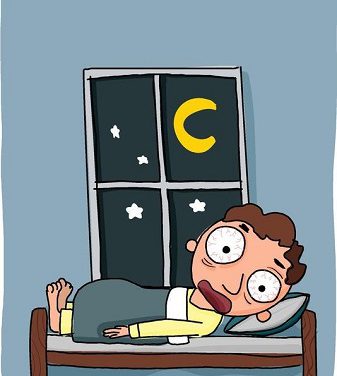
“The way you sleep in infancy will influence your whole life,” reports Hadassah Medical Center pediatric pulmonologist and sleep expert Dr. Alex Gileles-Hillel.
“Parents sometimes create behavioral insomnia by not insisting on good sleep habits,” Dr. Gileles-Hillel says. He recommends that if parents have a child with poor sleep habits, they should get medical advice early. In most cases, adherence to simple recommendations will solve the problem. Sometimes physicians will prescribe medications to treat a specific sleep disorder or an underlying condition. They may also perform a computerized sleep study, which could then alert parents to the need for consultations with various specialists, such as Ear, Nose, and Throat (ENT) surgeons, orthodontists, and/or neurologists.
Among premature babies, apnea, where breathing repeatedly stops and starts, is a prevalent problem. According to Dr. Gileles-Hillel, 15 million infants are born prematurely, comprising 11 percent of births worldwide. The majority of those born before 34 weeks of gestational age are affected by apnea in the neonatal intensive care unit.
Recently, Dr. Gileles-Hillel, along with pediatric colleagues from Hadassah Dr. Ira Erlichman and Dr. Joel Reiter, authored an article that was published in the Journal of Child Science, which provides an up-to-date summary of recent advances in understanding the pathophysiology of what is called apnea of prematurity (AOP) and what physicians and staff who treat infants with AOP need to know. Titled Apnea of Prematurity: An Update, the article explains that “AOP is a common diagnosis in the neonatal intensive care unit and one of significant clinical importance, both immediate and long term, as it is associated with reduced survival and poorer respiratory and neurodevelopmental outcomes.”
AOP is defined by recurrent significant cessation of breathing for longer than 20 seconds or respiratory pauses of shorter duration in the presence of a slower than normal heart rate and/or low levels of oxygen in the blood. As explained in the article, several mechanisms predispose premature infants to apnea. The inability to control breathing or maintain a stable breathing pattern are chief factors. Other contributors may be inflammation and nasal airway obstructions. In addition, genetic factors play a role.
In their article, the physicians also discuss treatments for AOP, such as respiratory support and avoidance of overheating the baby’s environment, as well as various medicines. Caffeine, they report, “has become one of the most prescribed and cost-effective treatments in neonatal intensive care units.” A study they cite demonstrated that “caffeine had significantly improved neurodevelopmental outcomes at 18 to 24 months of age and reduced the risk of neurodevelopmental disability, cerebral palsy, and cognitive delay.”
The authors also discuss when to discharge premature babies from the hospital, as well as monitoring apnea once the baby is home. Their discussion includes recommendations for longer-term follow-up as well.
In summary, the authors report “clear” consequences of AOP and specifically the accompanying temporary inadequate oxygen supply to the blood called intermittent hypoxia (IH). They write that this condition “is associated with an increased risk of death and developmental disability, more so in extremely premature infants.” At the same time, they add, “it is clear that caffeine may negate the short-term effects of AOP and possibly also attenuate the long-term effects. Premature infants are at increased risk of cardiometabolic morbidity later in life, such as obesity, hypertension, and metabolic syndrome. Whether AOP and the ensuing IH predisposes former premature infants to unstable breathing later in life or to other prematurity-related morbidity remains unclear.”
Interested to discover whether the immature breathing patterns described above in the neonatal intensive care units persist later in life, Dr. Gileles-Hillel has recently completed another study comparing breathing patterns during sleep in the first two years of life in infants with a history of prematurity to breathing patterns in those infants born at term. The study found that former preemies suffered from sleep apnea four times more often than their term-born peers. In addition, weight gain in infants with sleep apnea was poor, emphasizing the importance of diagnosing sleep apnea promptly at this age. This study, which was done together with Dr. Ido Sadras, Dr. Ira Erlichman, and Dr. Joel Reiter from the pediatric division at Hadassah and world-renowned pediatric sleep specialist Prof. David Gozal from the University of Missouri, is currently in press in the Journal of Clinical Sleep Medicine, the official publication of the American Academy of Sleep.
